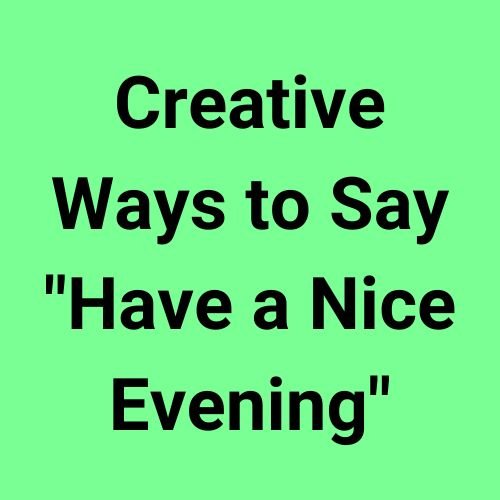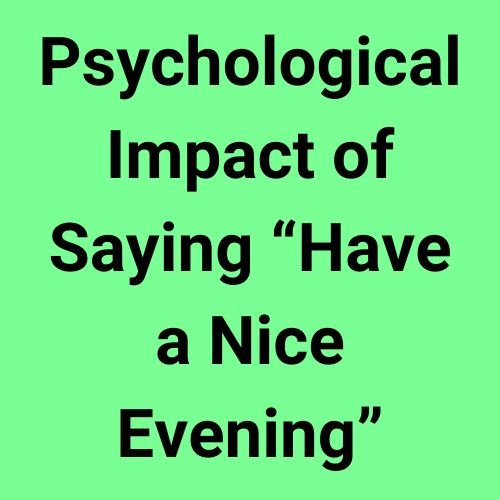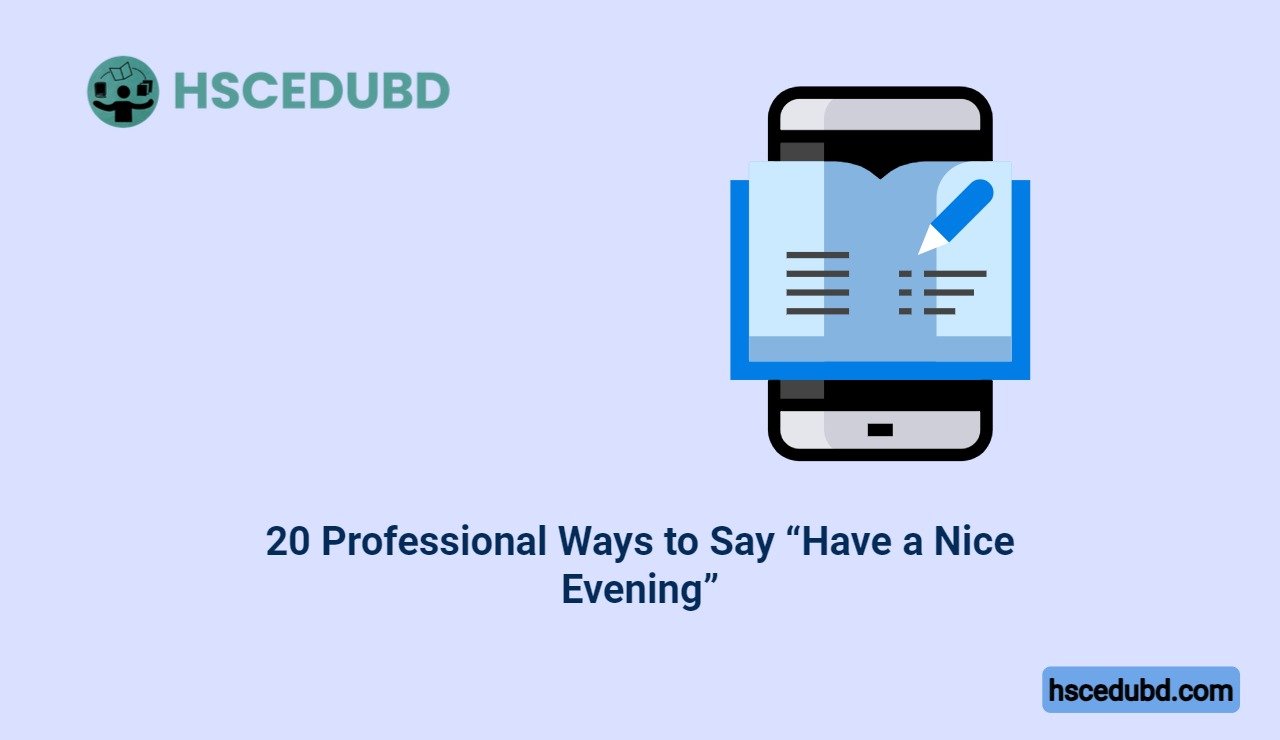In professional settings, ending your day on a cordial note is just as important as how you start it. A warm yet formal farewell, such as “Have a nice evening,” can leave a positive impression on colleagues, clients, or business partners. It reflects thoughtfulness and professionalism, creating a lasting, favorable memory of your interaction.
This article explores the art of wishing someone a pleasant evening in a business environment. With unique and practical examples, you’ll discover ways to adapt this phrase to fit various scenarios while keeping your communication polished and engaging.
Table of Contents
ToggleWhy It’s Important to Say “Have a Nice Evening” Professionally

Expressing goodwill at the close of a business interaction strengthens relationships. It shows respect, appreciation, and attention to detail, qualities that are highly valued in any workplace.
Here are key reasons why saying “Have a nice evening” professionally matters:
- Enhances Rapport: Conveys warmth and builds trust.
- Leaves a Positive Impression: Makes your interaction memorable.
- Closes Conversations Gracefully: Provides a polite way to end discussions.
- Boosts Workplace Morale: Encourages a culture of appreciation.
Whether it’s a casual chat or a high-stakes meeting, ending with a thoughtful phrase sets the right tone for future interactions.
20 Creative Ways to Say “Have a Nice Evening” in a Professional Context

Below are 20 variations of “Have a nice evening,” tailored to different workplace scenarios. Each one strikes the perfect balance between friendliness and formality.
1. Wishing You a Relaxing Evening
Example: “After today’s efforts, wishing you a relaxing evening.”
When to Use: Perfect for a colleague who has had a long, busy day.
2. Hope Your Evening is Productive
Example: “You accomplished so much today. Hope your evening is equally productive.”
When to Use: Suitable for those who thrive on maintaining momentum.
3. Have a Pleasant Evening
Example: “Thank you for today’s discussion. Have a pleasant evening.”
When to Use: A universally appropriate phrase for professional conversations.
4. May Your Evening Be Restful
Example: “After all your hard work, may your evening be restful.”
When to Use: Ideal for acknowledging someone’s dedication.
5. Enjoy a Well-Deserved Break
Example: “You’ve earned it today. Enjoy a well-deserved break this evening.”
When to Use: Perfect for recognizing someone’s achievements.
Adapting Your Message for Different Audiences
Knowing your audience is essential. The phrase “Have a nice evening” can be tailored for various professional relationships:
| Audience | Suggested Phrase | Best Use Case |
|---|---|---|
| Clients/Customers | “Wishing you a delightful evening.” | Formal, yet warm, after a productive discussion. |
| Team Members | “Hope you unwind this evening.” | Motivational and supportive after a long day. |
| Senior Leaders | “Have a peaceful and refreshing evening.” | Polite and respectful for higher-ups. |
| Peers | “Enjoy your evening and recharge.” | Casual yet professional for coworkers. |
The Psychological Impact of Saying “Have a Nice Evening”

Ending your interactions on a thoughtful note can have a profound effect on relationships. Here’s why it works:
- Creates Positivity: Simple phrases evoke feelings of appreciation.
- Improves Communication: Signals that you value the interaction.
- Encourages Reciprocity: Promotes goodwill, often returned in kind.
For example, when you say, “Have a nice evening,” it shows you care about the person beyond the immediate context of work. Such small gestures can boost morale and foster a collaborative spirit.
Tips for Delivering Your Evening Wishes Effectively
1. Match the Tone to the Situation
Use a formal tone in business settings and a relaxed tone with close colleagues.
2. Be Genuine
Authenticity matters. Speak from a place of sincerity.
3. Add a Personal Touch
Mention something specific, like, “After that long meeting, have a relaxing evening.”
4. Time Your Farewell
Deliver your wishes at the natural end of a conversation, ensuring it doesn’t seem abrupt.
Bullet Points: Quick Professional Farewell Phrases
For easy reference, here are some professional alternatives to “Have a nice evening”:
- “Enjoy your evening.”
- “Wishing you peace and rest tonight.”
- “Hope your evening is as productive as your day.”
- “May your evening be pleasant and hassle-free.”
- “Looking forward to tomorrow; have a great evening.”
FAQs About Saying “Have a Nice Evening” Professionally
1. Why is saying “Have a nice evening” important in professional settings?
It conveys respect and appreciation, leaving a positive impression on the recipient.
2. Can I use informal phrases in professional emails?
Yes, as long as they’re polite and appropriate for the recipient, such as “Hope you unwind this evening.”
3. What are some formal ways to say “Have a nice evening”?
“Wishing you a restful evening” or “May your evening be peaceful.”
4. Should I personalize evening wishes?
Personalizing them, like mentioning their day’s effort, adds warmth and sincerity.
5. How can I use this phrase effectively in business emails?
Place it in your closing line, e.g., “Thank you for your time today. Wishing you a great evening.”
Conclusion: Mastering the Art of Saying “Have a Nice Evening”
Ending your professional interactions with a thoughtful farewell like “Have a nice evening” goes a long way in building strong relationships. By adapting this simple phrase for different contexts and audiences, you can ensure your communication remains polite, professional, and engaging.
Whether you’re addressing a client, colleague, or supervisor, the key is to convey sincerity and warmth. These small gestures often leave a lasting impact, making every interaction more meaningful.

